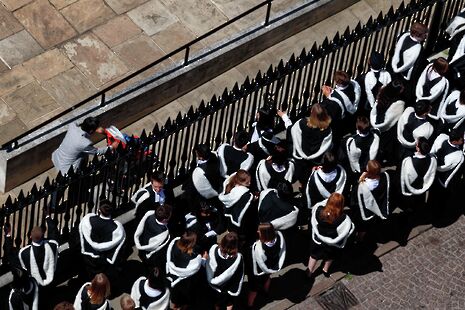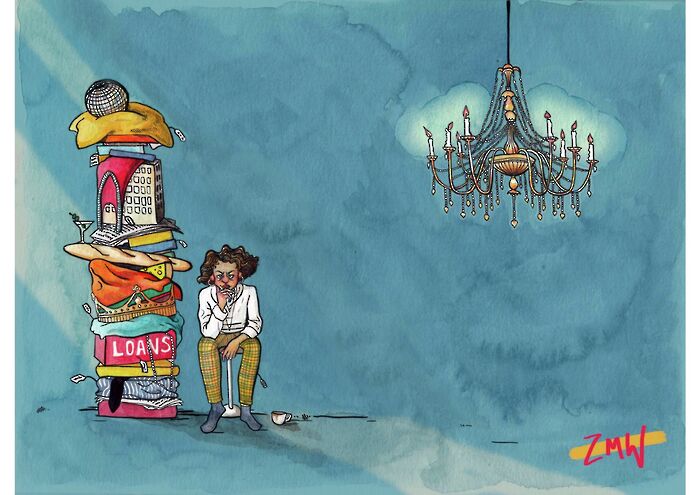A government-commissioned review is considering tuition fee changes. Here’s what that could mean.
The Department of Education have said that the review is looking to provide students with better “value for money” in higher education, while university heads have signalled alarm bells

Recent leaks have revealed that a government-commissioned review is considering plans for a tiered system of tuition fee rates, in what is said would cast a blow to budget sheets for universities across the country.
The Augar review, commissioned last year by Prime Minister Theresa May and led by financial services expert Philip Augar, is expected to publish its recommendations for the sector next month.
It remains unclear, however, whether the review will translate into concrete government policy, given present uncertainty around Brexit and current political priorities.
What is the review rumoured to propose?
Included in the review are rumoured plans to cut tuition fees for arts and humanities subjects to £6,500 and raise science and engineering fees to up to £13,500 for UK students, in a tiered system where students studying subjects perceived as yielding higher earnings would be charged higher rates.
Proponents of a tiered system argue that the lower tuition rates for arts and humanities degrees would correspond with subjects which require less expensive teaching, which compared to science subjects, generally use less equipment and have fewer teaching hours.
Opponents to the system, however, foresee arts and humanities degrees struggling to retain funding, and argue that the plan could be socially exclusionaryregressive: that higher tuition for sciences could drive poorer students away from medicine and sciences. The review is also rumoured as having plans to prevent students who get fewer than three Ds at A-level from qualifying for student loans, which has raised similar concerns of limiting social mobility.
CUSU Education Officer Matt Kite has criticised a perspective with which the review was commissioned, describing a “relentless focus on student choice as consumers in a market”, arguing that the ‘value for money’ priority is “often framed in very reductive economic ways”.
How have universities responded so far?
The rumoured tuition fee cuts have already witnessed apprehensive responses from senior university figures, amid fears that the lowering of the current £9,250 tuition fee cap may not be made up for by the UK government. Speaking to The Guardian, several vice-chancellors warned that a lowering of institutions’ fee incomes could leave students with a worsened quality of education, cuts to funding of mental health support services, and a narrower range of subject choice at some universities.
One Russell Group vice-chancellor indicated that university administrators would need to “make some tough decisions” on teaching certain arts and humanities subjects, where enrolment numbers would need to increase on the courses “to make them viable”.
The future of certain humanities courses have already come under question at some universities in the UK, while some have warned of future job cuts as a result of worsening budget deficits due in part to lowered tuition fees, uncertainty over the Brexit outcome, and lower forecasts for student recruitment.
The future outcome of the review has also been listed as a potential future “risk area” in Cambridge’s most recent financial statements, which noted that expected income gains in tuition fees from greater postgraduate numbers may be “somewhat offset by a freeze in Home/EU undergraduate fees and the awaited outcome of the government’s post-18 review”.
Where do EU students fit in?
The UK government already announced last July that EU students beginning their course in 2019 will pay equivalent fees as UK students for the duration of their degree. However, no long term decision on tuition fees for EU students after 2019 has been decided.
In Cambridge’s 2016-2017 Big Cambridge Survey, 39% of EU students agreed with the statement, “without financial support I could not afford to continue with my studies”. And in 2017, Cambridge saw its first drop in applicants from the EU since the 2011 tuition fee hike.
 Features / Beyond the porters’ lodge: is life better outside college?24 February 2026
Features / Beyond the porters’ lodge: is life better outside college?24 February 2026 News / Cambridge academics sign open letter criticising research funding changes22 February 2026
News / Cambridge academics sign open letter criticising research funding changes22 February 2026 Theatre / Footlights Spring Revue? Don’t Mind if I Do!25 February 2026
Theatre / Footlights Spring Revue? Don’t Mind if I Do!25 February 2026 News / Cambridge and Manchester Universities meet for innovation partnership26 February 2026
News / Cambridge and Manchester Universities meet for innovation partnership26 February 2026 Fashion / The evolution of the academic gown24 February 2026
Fashion / The evolution of the academic gown24 February 2026











![How to Create an Attractive Freelancer Portfolio [5 Tips & Examples]](https://www.varsity.co.uk/images/dyn/ecms/320/180/2026/02/vitaly-gariev-ho2tNOWZYXM-unsplash-scaled.jpg)